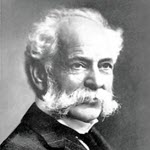
Early Life
HJ Heinz began working very early in life, growing vegetables in the family garden in his formative years and by his early teens, he was bottling horseradish and selling to local grocers. His mother was an enormous influence on Henry. At the end of his life, reminiscing on what shaped the person he became, he said, “This legacy was left by my consecrated mother, who was a woman of strong faith and to it I attribute any success I may have attained during my life.” The main source of her teachings centered around the Bible where she tried to make it clear to young Henry, “to not make your religion so narrow that it will be unattractive to others and don’t make it so broad that you leave yourself no foundation on which to stand.”
His First Business
Heinz expanded upon the fledgling garden to market operation of his adolescent days by investing all of his savings and partnering up with EJ and brother LC Noble to form Heinz, Noble and Company at the age of 25. In the span of 5 years, they became a leader in supplying horseradish, vinegar and pickles to area grocers. By age 30, Heinz Noble had 25 horse drawn carriages, 160 acres of farmland, a factory in St Louis, MO, warehouse in Chicago, IL and its main operations with several buildings in Pittsburgh, PA. Henry was instituting world class business tactics such as clear bottles to show off the quality of their products (as opposed to the cheaper dark bottles that competitors used) and extremely clean horse drawn carriages that all looked exactly alike for marketing and brand building. He was very involved in every detail of the business, kept a tight rein on marketing and sales, and the business thrived.
Going Broke
The financial panic of 1875 brought the entire business down. When the economic house of cards came tumbling down, despite the success of their business, it was no match for the financial crisis that unfolded. Heinz Noble was paid by grocers who typically
After his bankruptcy, even though he was not legally obligated, he felt it was the right thing to do, to pay back what he owed completely. And in the span of just a few years, he paid them back, tremendously raised his credibility with local business owners and made him many friends. In fact, his business was so successful that he began extending loans to the very creditors he had paid back in full!
Leave a Reply